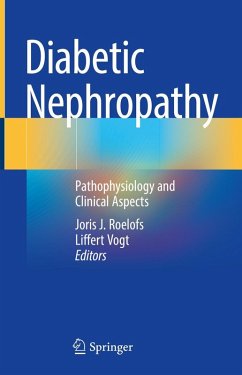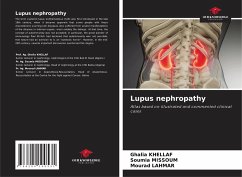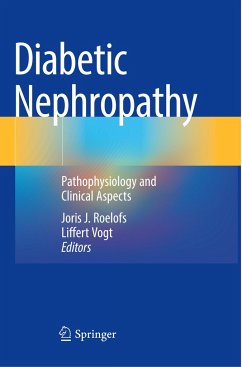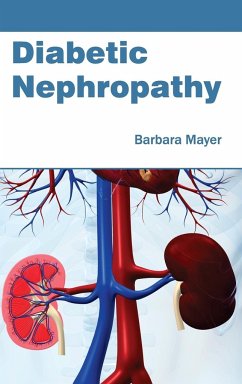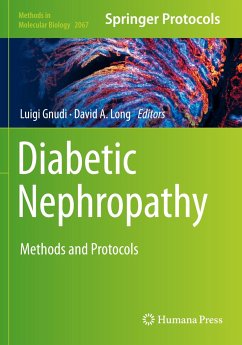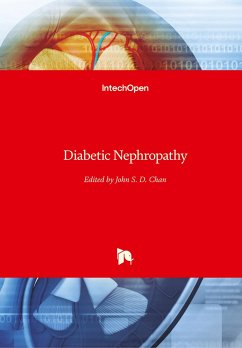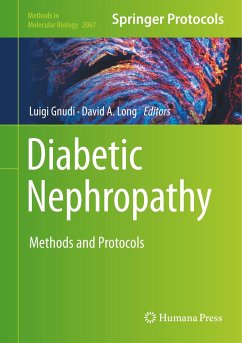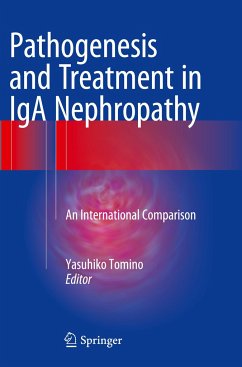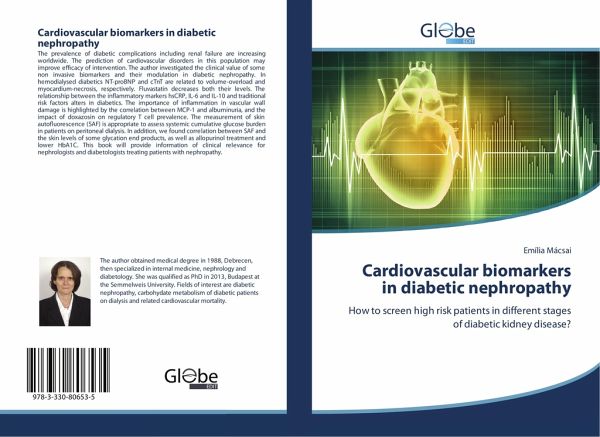
Cardiovascular biomarkers in diabetic nephropathy
How to screen high risk patients in different stages of diabetic kidney disease?
Versandkostenfrei!
Versandfertig in 6-10 Tagen
20,99 €
inkl. MwSt.

PAYBACK Punkte
10 °P sammeln!
The prevalence of diabetic complications including renal failure are increasing worldwide. The prediction of cardiovascular disorders in this population may improve efficacy of intervention. The author investigated the clinical value of some non invasive biomarkers and their modulation in diabetic nephropathy. In hemodialysed diabetics NT-proBNP and cTnT are related to volume-overload and myocardium-necrosis, respectively. Fluvastatin decreases both their levels. The relationship between the inflammatory markers hsCRP, IL-6 and IL-10 and traditional risk factors alters in diabetics. The import...
The prevalence of diabetic complications including renal failure are increasing worldwide. The prediction of cardiovascular disorders in this population may improve efficacy of intervention. The author investigated the clinical value of some non invasive biomarkers and their modulation in diabetic nephropathy. In hemodialysed diabetics NT-proBNP and cTnT are related to volume-overload and myocardium-necrosis, respectively. Fluvastatin decreases both their levels. The relationship between the inflammatory markers hsCRP, IL-6 and IL-10 and traditional risk factors alters in diabetics. The importance of inflammation in vascular wall damage is highlighted by the correlation between MCP-1 and albuminuria, and the impact of doxazosin on regulatory T cell prevalence. The measurement of skin autofluorescence (SAF) is appropriate to assess systemic cumulative glucose burden in patients on peritoneal dialysis. In addition, we found correlation between SAF and the skin levels of some glycation end products, as well as allopurinol treatment and lower HbA1C. This book will provide information of clinical relevance for nephrologists and diabetologists treating patients with nephropathy.



